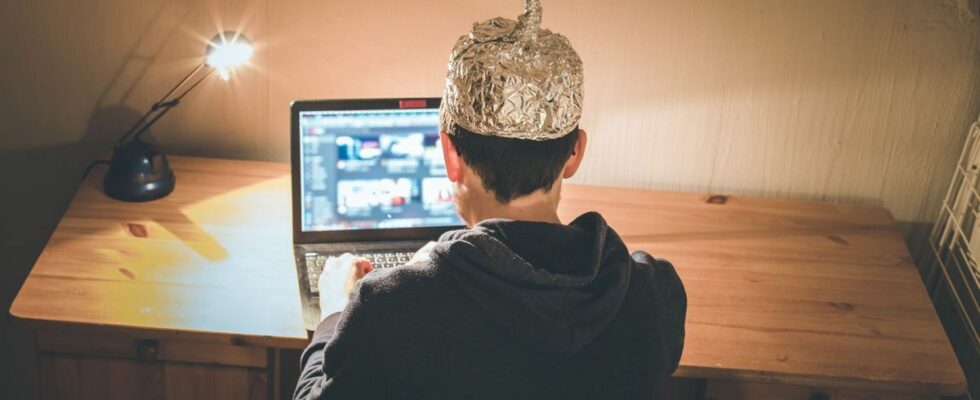Published on
updated on
Reading 2 min.
On social media, it’s impossible to scroll without coming across yet another conspiracy theory involving celebrities and other secret societies. But according to an American study, if platforms are a breeding ground for conspiracy theories, it is those close to us who reinforce us in these false ideas. Explanations.
This is not new. Conspiracies spread like wildfire on social media. If platforms are often criticized for their role in the propagation of false information, a study conducted by researchers from several American universities highlights the preponderant role of family and friends in the belief of this false information. In other words, you will be more likely to believe a wild theory if you heard it from someone close to you. “While social media was a key conduit for exposure to conspiracies, finding these theories plausible was associated with having heard about them through social connections. This result is consistent with classic ideas about the persuasive role of mass and interpersonal communication.“, advances the study.
To try to understand why respondents believe in these conspiracy theories, researchers questioned 2,765 people, from July 17 to 21, 2024, a few days after the first assassination attempt on Donald Trump, then in the middle of the electoral campaign in Pennsylvania. Following this failed attempt, numerous conspiracy theories emerged and were relayed by supporters of both political sides. If 93% of those questioned confirmed having become aware of the attack on the former President of the United States, 65% indicated having learned about it thanks to television, followed by social networks for 44%, then by family and friends for 30%.
While 38% of Americans surveyed heard the theory that Democrats were behind the attack, more than half of them (52%) learned about it on social media. Still, 31% of them heard it from their loved ones, as well as on television.
50% of respondents were still aware of the more general conspiracy theory, according to which everything had been created from scratch. Among them, 52% heard this idea on social networks, 32% from family and friends and 25% on television. Still, almost a third think that the rumor could be true, including 11% who describe it as “very likely” and 19% as “fairly likely”. “These descriptive findings contrast with reports from other researchers who argue that relatively few Americans—primarily highly mobilized partisans—are exposed to most fake news online. We find just the opposite: more than half of Americans quickly became aware of one or both conspiracy ideas, primarily through social media and interpersonal relationships. Furthermore, a significant percentage of those who knew these stories believed them.“, we can read in the study.
It is therefore difficult to get away from social pressure: “They [les croyances conspirationnistes] tend to be held by people who are inclined to this type of thinking, motivated to hold a given belief, and who have received information through social connections. Attempts to ameliorate conspiracy beliefs must distinguish diffusion from exposure and exposure from belief, and recognize the varying roles of media and interpersonal influence at each stage” concludes the study.
Note that among the respondents, aged on average 57 years, 62% were women, 34% supported the Republican Party and 36% voted Democratic.
